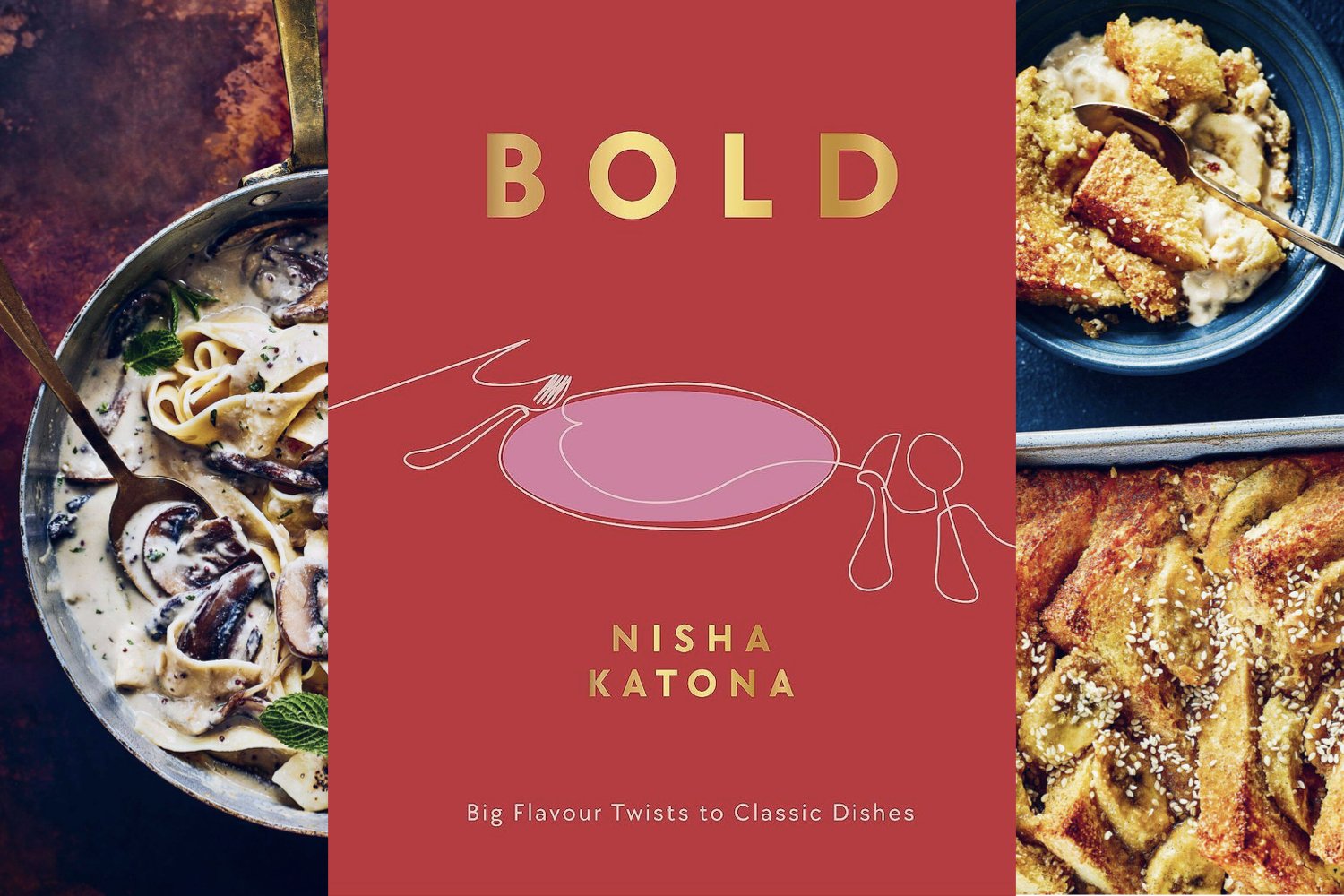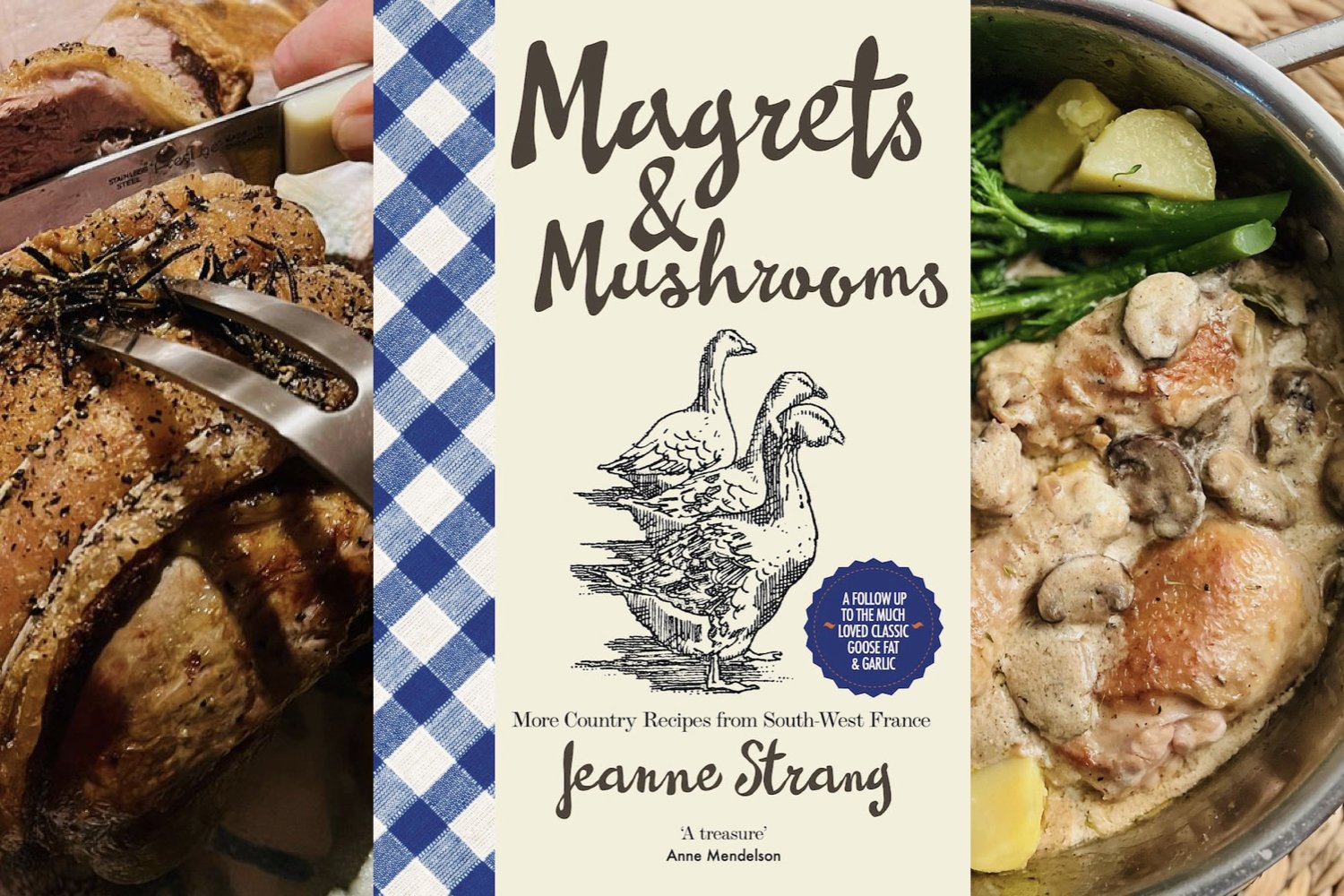Advertisement
Behind the Cookbook: Islands In A Common Sea
11 April 2024 · Behind the Cookbook
Jenny Jefferies latest book expands the horizons of her work looking at farming and fishing, to take an international view, with stories and recipes from 25 producers around the world. We spoke to Jenny about how this book came about, and what she learned while bringing it together.
Q & A with Jenny Jefferies, author of Islands In A Common Sea
Q The stories in the book cover a huge geographic range and a diversity of cultures. How did you go about researching such a wide-ranging book to find these stories?
A I read a lot. Usually by the light of my phone and after my children have gone to bed, I’m reading papers, journals and articles which is what I really love to do. This part of the process is what I enjoy the absolute most; discovering new stories of innovation and inspiration for the very first time. It really is a worldwide journey of discovery and intrepidation. The hardest part is selecting the stories for the books, especially for my most recent book Islands In A Common Sea. I wanted to choose stories that were not only amazing and compelling, but that they were also a good geographical spread, a variation of food groups and produce, and a great selection of accessible and delicious recipes. The main challenges were all the different time zones, the language barriers and the local, delicate, economic pressures. I could often be found emailing Australia in the middle of the night!
I also used my ingenuity and personal contacts. For example, I visited Malawi in my mid twenties and was able to ask a friend there if she knew of a poultry farmer. My parents went on holiday and stayed in a hotel in Switzerland last Summer, and they got talking to the hotel manager and they put me in touch with one of their suppliers… I just love all these connections and engagements that we can all have. It is what makes the world go round.
Q Are there some ways in which looking at the bigger global picture of food changed your thinking, after the more local focus of For the Love of the Land and For the Love of the Sea. How much do the stories all have in common vs how much so do need to remember that each country has its own context and its own challenges?
A What I have learnt about both farming and fishing and what is one of the main premises of Islands In A Common Sea is that a Farmer’s and fishermen’s problem and solution in this country is very similar, if not the same, to a Farmer’s and fisherman’s problem and solution on the other side of the world. Climate change, conflict, local economic policies and political issues; we’re all in this together. We must listen to each other, learn from each other and celebrate together. Stories can change each and every one of us, and stories can change the world. We have a lot more in common with each other than not, and we must all, wherever we are, buy local, buy seasonally and buy sustainably.
Q I notice that the recipes in the book include a number of interesting and unusual ingredients. Are there any ingredients which you came across for the first time while writing this book which you really came to appreciate?
A I absolutely appreciate all the wonderful and varied produce from all over the world. What the earth and Mother Nature gives us, and all the incredible people whom harvest it all in such a way that is nourishing, sustainable and regenerative; it lifts my heart and soul. Produce that I came across for the first time include Moringa leaves in Ghana, black carrots in India, wild salmon in Alaska and so much more! Aren’t we all are so lucky to be alive and to enjoy it all in a sustainable way?
Q How did the recipe testing process go? Any special challenges posed by the unusual local ingredients?
A There is a huge amount of trust involved within this whole process. I tested and delegated most of the recipes to family and friends, but due to the local ingredients used, some recipes had to be tested by their contributors. I enjoyed making the Yemeni honey cake and we very much enjoyed the photoshoot in my kitchen. We were very pleased with the results as this is not a common recipe for restaurants in Yemen, but rather a more popular recipe for the women to make in their private homes. The layering of the cake is really intricate and important, and it is delicious and unique.
Q I was interested to learn that potatoes grown in the Hoeksche Rooie region have DoP protection. Did you have chance to sample them?
A Not yet, but we are hoping to visit one day to try them.
Q Is there a place featured in the book with which you feel an especially strong personal connection?
A I have very fond memories of being in Malawi with Gill Hunter who is the founder of The Hunter Trust, a charity which raises money here in the UK and then uses the donations to build teacher’s houses and fund children through their education system. I was out there filming a promotional video for Gill during the time that I worked as a picture editor, and I will never forget going to a local market to choose our chickens for supper. I wrote about chicken as my Consuming Passion for ckbk; which includes an experience in Malawi that I will always remember and am truly grateful for. The photographs featured in Islands In A Common Sea in the chapter about Malawi are my own. Malawi is such a beautiful country with beautiful people, and I hope to take my family there one day.
Q Are there any places mentioned in the book that you have not been to but would especially like to visit?
A Yes of course! I would love to visit all of these wonderful farms and fisheries whom are featured in Islands In A Common Sea. We have been invited to join Virginnie, the Spanish farmer in La Segarra, to help out with their olive harvest towards the end of the year when John (my husband) and I will also be celebrating our 10th wedding anniversary. My daughters particularly enjoy Virginnie’s recipe for Almond Biscuits; it’s such a lovely, accessible, straightforward and versatile recipe that we enjoy making together at home.
Q What advice would you give to cooks keen to source high quality ingredients in an ethical way?
A The best way in which you the consumer can support our food producers, especially our farmers and fishermen, is to buy local, buy seasonal, buy sustainably, and if you’re in the UK, to buy British. What’s seasonal in, for example Cornwall, may not be seasonal in somewhere like the west coast of Scotland. Seasonality completely depends upon your geographical location and the time of year. I would urge you to frequent your local farmer’s markets, fishmongers, delicatessens, butchers, bakers, and stay clear of mass-produced food from places like supermarkets and corporations. You and I have the power to spend our money wisely. You are what you eat, so eat something natural.
Islands In A Common Sea features around 40 recipes from all over the world. Cooks may not be able to get specific ingredients for some of the recipes but this book is more than just a cookbook. It’s also about the stories connected to the food, and to the people.
One of my favourite stories is from Ryan Nienaber of Greenfish in South Africa. “There once was an old man walking down the beach after a big storm. Millions of starfish had washed ashore, so the old man bent over, picked up a starfish and tossed it back into the water. He walked on a few metres, lent over to pick up another starfish and tossed that one back into the water too. A young man came along and asked the old man what he was doing. The young man told the old man that he was crazy, as there were so many starfish washed up on the beach that he would never make a difference. The old man looked at the young man and said: “but I have made a difference, for those two starfish.”
If we can each make a small difference, it will amount to something great. Be informed about your seafood, how it was caught and where it comes from.”
Q The book supports the World Food Programme via the Share the Meal initiative. Can you say more about why you chose this charity?
A I chose the incredible ShareTheMeal campaign by the United Nations World Food Programme because first of all, I always support a charity with each and every one of my books, and secondly, I think we are the generation to help eradicate world hunger for good.
The Top Ten richest people in the world have a combined net worth of $1.175 Trillion and according to estimates from the United Nations Food and Agriculture Organization (FAO), an annual investment of around $267 billion is needed to achieve Zero Hunger by 2030.
Is there a fine line between a self-indulgent ego trip and making positive significant change? I know that if I had a net worth of $234 billion like Elon Musk, for example, I wouldn’t blow it up in a space rocket. I would rather give it all away and revel in being a modern day Robin Hood. Perhaps I would be tripping over my ego whilst at the same time as being thoughtful and philanthropic?
As well as the wonderful volunteers who give tirelessly to our societies and communities, we also need good politics that work, and the money to be spent wisely. Most of us, already have the required heart and compassion, we just need great leaders again. The world could instantly become a better place for a lot of people.
There’s a fantastic quote from an Uruguayan journalist, writer and novelist called, Eduardo Galeano who said, “Many small people, in small places, doing small things, can change the world”. You drop a pebble into a pond and you get a ripple effect. If everyone threw a pebble into the pond the ripples would spread even further. I believe we can all be a pebble!
ckbk Premium Members have access to the full content of Islands Ian A Common Sea and more than 800 other cookbooks. A portion of proceeds from sales of the book (and usage on ckbk) go to support the work of the UN World Food Programme via its ShareTheMeal initiative.
Top recipes from Islands In A Common Sea
More ckbk features
Nisha Katona’s latest book is takes your tastebuds in bold new directions
Barbara Feldman Morse’s book offers myriad ways to enjoy these classic French teatime treats
Advertisement








